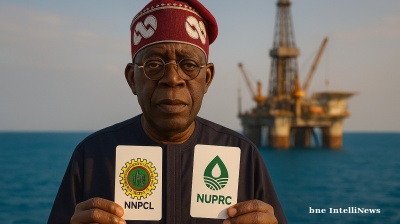EU leaders agreed on March 7 that irregular migration along the so-called Western Balkans route has come to an end, as they hammered out a draft agreement with Turkey. However, there are already worries that this will displace the migrants onto other routes via Albania and Bosnia & Herzegovina.
With just a few thousand migrants now in countries along the Western Balkans route – running from Macedonia through Serbia, Croatia and Slovenia to Austria – the situation in most countries in the region can be expected to return to normal relatively soon.
At the March 7 summit in Brussels, EU leaders agreed in principle with Turkish Prime Minister Ahmet Davutoğlu that Turkey would act to prevent the exodus of refugees and migrants to Greece in return for various concessions including a substantial aid package and support for its EU candidacy. Another meeting is scheduled for March 17-18, when a final agreement is expected. Meanwhile, MEPs are expected to debate the agreement on March 9.
EU leaders said they broadly supported a statement which also says the bloc will “continue to cooperate closely with the non-EU countries of the Western Balkans and provide any necessary assistance”.
Countries along the route have already unilaterally tightened border control following the Austrian decision to severely restrict the number of asylum seeker applicants and migrants allowed to cross its territory. This had a domino effect on other countries along the route, each of which introduced similar measures to avoid being stuck with thousands of migrants unable to continue their journey.
Almost a million people have travelled the Western Balkans route since the start of the migrant crisis last year. However, very few migrants decided to stay in the Western Balkans and seek asylum, with virtually all of those who entered the region travelling across it as quickly as possible on their way to Germany, Scandinavia and the UK.
The statement from EU foreign ministers was already expected after EU ambassadors on March 6 drafted a statement saying they would "close the Balkans route in the coming days", AFP quoted an EU diplomat as saying.
This will move the burden of dealing with the thousands of migrants now backed up in Greece, the first point of entry to the EU after Turkey for most, onto Athens. According to the BBC, around 14,000 people are now at the notorious Idomeni camp on the Greece-Macedonia border after Skopje closed its borders, only allowing a small number of refugees from Syria and Iraq through each day.
The situation at the camp, which has been the site of several violent clashes between refugees and Macedonian border guards, was reportedly tense in advance of the summit, as migrants waited to hear whether they would be able to continue on their journey or face an uncertain future in Greece. Athens was also reportedly pushing for the Western Balkans route to be kept open.
The Greek government plans to move migrants away from the Macedonian border, where thousands are stranded in increasingly squalid conditions numbers at the camp originally intended for just 2,000 people continue to grow. The EU statement also says it will provide additional help to Greece in managing the external borders, “including those with the former Yugoslav Republic of Macedonia and Albania”.
However, there are fears that with the route via Macedonia cut off, migrants at Idomeni and elsewhere in Greece could still try to make their way north, for example via Albania, Montenegro and Bosnia, or northeast across Bulgaria and Romania, countries that are not on the current route.
While Albanian Prime Minister Edi Rama said in February that the country would not become the new route for migrants, sections of the mountainous border between Albania and Greece are virtually impossible to secure. Bosnian Foreign Minister Igor Crndak said on March 7 that the country is preparing for migrant arrivals.
News
_1758059076.jpg)
Trump brands Colombia a narcotics pariah as cocaine production hits record highs
Colombia has been branded a narcotics pariah by the Trump administration, receiving its first "failing to cooperate" designation since 1997 as record cocaine production and deteriorating US-Colombia relations reach a breaking point.

Fuel prices in Kyrgyzstan rocket as Ukraine steps up drone strikes on Russian refineries
Central Asian country relies on Russia for nine-tenths of its fuel.

El Salvador leads Latin America's democratic decline, global watchdog warns
The latest IDEA report warns El Salvador faces the fastest democratic erosion in Latin America, with security policies under Bukele raising concerns over freedoms, judicial independence, and long-term institutional damage.

Nigerian president advances oil bill placing NNPCL under control of Finance Ministry, upstream regulator
President Bola Tinubu has endorsed a bill that would undermine the "independence" of NNPCL, shifting ownership to the Finance Ministry and handing new powers to upstream regulator NUPRC.




